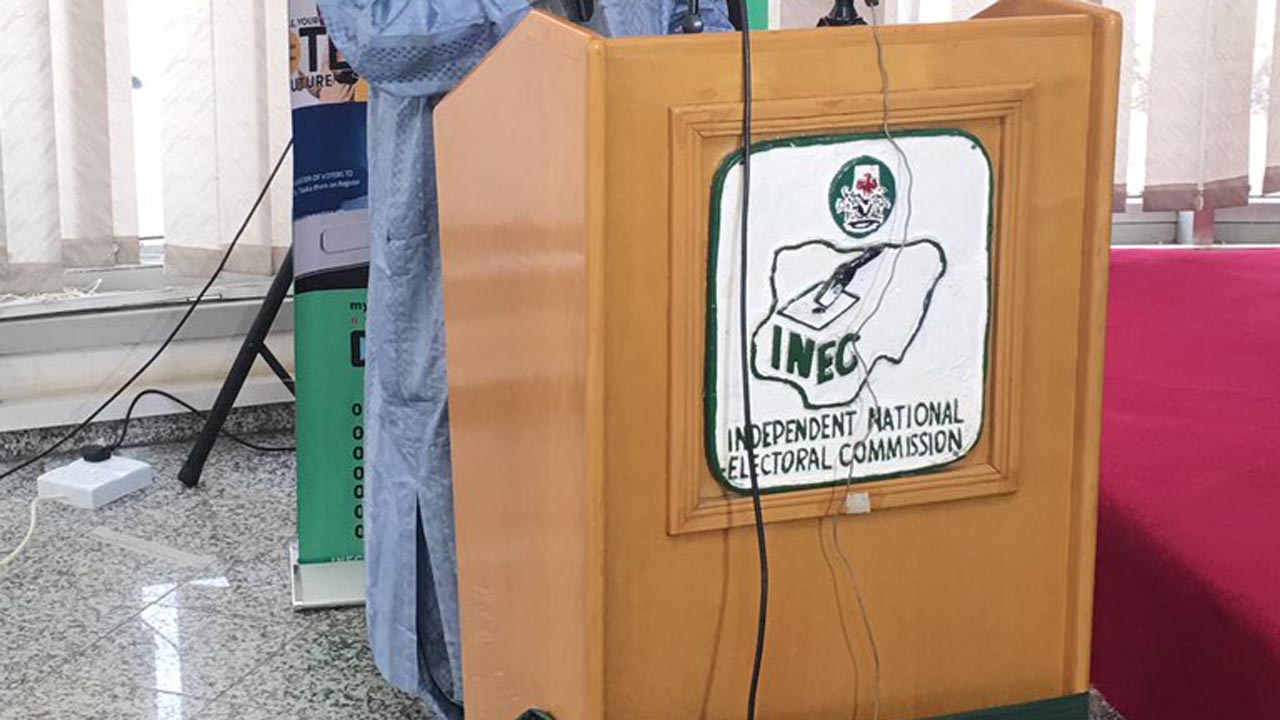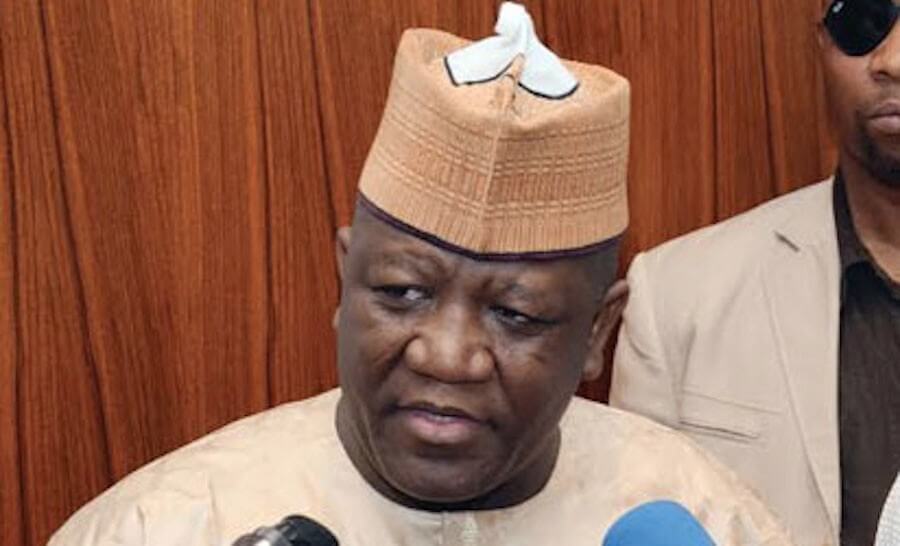
• INEC Should Go After Other Electoral Fraud Perpetrators – CISLAC
• Passage Of Electoral Reform Bill Is Vital
• Skewing Electoral Outcomes Must Have Dire Consequences – CDD
Last week’s conviction of Prof. Peter Ogban for election fraud may have drawn applause from a broad spectrum of the society, but stakeholders insist that the journey to Utopia has only just begun.
Ogban, a professor of soil science, at the University of Calabar, and a returning officer in the 2019 general elections in Akwa Ibom North-West District, was last Thursday sentenced to three years in prison, for election fraud. This is the first time that the Independent National Electoral Commission (INEC) is prosecuting professors for electoral fraud.
The court found Ogban guilty of fraudulent manipulation of election results of Oruk Anam and Etim Ekpo local councils, as well as announcing false results.
He had earlier told the court how the results of the election were falsified to give the All Progressives Congress (APC) an unfair advantage over the Peoples Democratic Party (PDP). In one of those instances, over 5, 000 fake votes were added to the APC’s score in Oruk Anam, in the election where, the Minister of Niger Delta Affairs, Senator Godswill Obot Akpabio lost to the PDP candidate, Obong Chris Ekpenyong, a former deputy governor of the state.
According to stakeholders, the academic’s conviction though significant, will not substantially alter the convoluted electoral system, as much more fundamental steps need to be taken if the country intends to sanitise the electoral system.
While the Civil Society Legislative Advocacy Centre (CISLAC) explained that the conviction will not only boost the confidence of INEC to secure more convictions of electoral offenders, the Centre for Democracy and Development (CDD) equally lauded the development adding that it was imperative for technology to be injected into “electioneering, but this must be phased and come alongside with measures to safeguard its use in elections.”
It, however, regretted that “the whole essence of the Jega-led INEC introducing esteemed citizens into the electoral process was almost thwarted by some unscrupulous few. I am sure this is a lesson learnt to them especially as the politicians are quick to disown those found wanting publicly.”
On his part, human rights lawyer, Inibehe Effiong said given the brazen manner in which politicians go about electioneering, can the jail sentence handed Ogban has the capacity to inject sanity into the election process, and also pave way for “self-introspection by election officials.”
Making CISLAC’s position known, its executive director, Auwal Musa Rafsanjani, said: “The conviction of the professor of social science, Peter Ogban, who was a returning officer in the 2019 elections is very commendable and CISLAC will like to laud INEC on this. This will not only boost the confidence of INEC to secure more convictions of electoral offenders, but it will also serve as a warning to would be offenders that it is no longer business as usual.
Laudable as the conviction may be, CISLAC, which noted that “every action has its effects, be it positive or negative”, added, “if you look at this conviction, it will have a positive effect. However, the sentencing of the professor to three years in prison and the N100, 000 fine shouldn’t be the end of INEC’s legal onslaught against perpetrators of electoral fraud. INEC should ensure that the net is broadened to get others involved including the core politicians.”
The group while commenting on steps that the government must take to usher in an era of credible elections said: “First and foremost, we will need to upgrade the legal frameworks guiding our electoral process in line with current realities. The Electoral Amendment Bill should be passed, and assented to after due diligence has been carried out within the best interest of Nigerians and Nigeria.
“Second, responsible authorities should ensure adequate security during elections. Security apparatus shouldn’t be politicised, or compromised to favour certain individuals due to party inclinations.
“Third, those involved in vote-buying, which has become an issue recently should be apprehended by security operatives. They shouldn’t turn a blind eye to these. Finally, INEC should also maintain a high standard of independent. The commission should take appropriate measures in line with the rule of law without fear or favour. INEC should also make it clear that it will cancel any election where irregularities have been proven to occur in line with our electoral laws, and guidelines. This will send a strong message to political actors bent of sabotaging our electoral process.”
Taking a queue from what technology has achieved in other areas of our national life, CISLAC maintained that it was time technology was made to play a bigger role in our electoral process to reduce compromise and fraud.
“Like we have seen in the implementation of the Treasury Single Account (TSA), Integrated Personnel & Payroll Information System (IPPIS), Bank Verification Number (BVN) and the likes, technology has proven overtime to help reduce fraud in various sectors. You will agree that the advent of card reader has helped strengthen our electoral process. Moving forward, the National Assembly should ensure that INEC has the legal backing to adopt technological measures that will help guide our electoral process. An important aspect where this will help greatly is the area of transfer and collation of votes. This area has proven to be where many of these manipulations and electoral fraud occur, and if we are able to work on this as a nation, it will be a positive move. Technology will help improve electoral integrity because it can be used to verify results and votes.
EFFIONG agrees with Rafsanjani on the importance of using technology in deepening the electoral process.
“Electronic accreditation, voting and collation of results should be implemented through the National Assembly. I endorse the pending Electoral Reform Bill and demand its swift passage. It is a shame that the National Assembly and President Buhari are paying lip service to electoral reforms, contrary to their campaign promises. Although INEC had gone ahead of the National Assembly to introduce the Permanent Voters Card and the Smart Card Reader through their guidelines, the Supreme Court has made it clear that non-reliance on them cannot be the basis for challenging election results since the National Assembly has not incorporated them into the Electoral Act. Nigerians should continue to insist on the passage of the Electoral Reform Bill.”
The legal practitioner described Ogban’s conviction “as a good precedent in the country given our long years of pervasive electoral impunity. It is also of interest that the person involved in this case is a university professor, who is supposed to impart knowledge and find solutions to Nigeria’s problems through academic research. It is shameful indeed. Before now, those who commit various forms of electoral offences were not prosecuted by the INEC. I hope this will serve as deterrence.”
On whether the jail sentence can bring about sanity in the election process, he responded: “Absolutely, even though this will not substantially alter the electoral system, I hope it will lead to self-introspection by election officials. We cannot continue to condemn election riggers without apportioning punishment appropriately.”
Effiong said that, “the Justice Mohammed Uwais Report on Electoral Reform remains a good starting point” for sustainable steps that government must take to midwife an era of credible elections.
He continued: “One of the ways of instilling sanity in the system, as recommended, is for the burden of proving that election was duly conducted in compliance with the law to be placed on INEC. At election tribunals, the courts have laid down precedents, which have made it practically impossible to prove that election was marred by irregularities and fraud. It should be the duty of the INEC to prove that election was properly conducted.
“Also, this conviction reinforces the argument in support of the establishment of a distinct Electoral Offences Commission to deal with cases of electoral fraud like the one in this case. I also believe that we need to revisit the process of appointing the chairman and other leaders of INEC.
THE CDD, which posits that Ogban’s conviction represents a “watershed in the country electoral history,” added that it is also a “wake up call to electoral officials of the punishment that awaits riggers. In the last couple of years, INEC staff have been prosecuted and jailed, but an ad hoc staff at the level of a professor crowns previous efforts in addressing electoral impunity. I commend the INEC for diligent prosecution of the case and we are hopeful of more. Now electoral officials will now the fate that awaits them if caught in skewing outcomes.
The brazen way academics interfered in the 2019 general elections was shocking, from Kano, Imo, Cross River, several bad eggs brazenly rigged elections, ran away with the result sheets, and changed the rules.”
The group said that it was important for “Nigeria to conclude her electoral reform timely. In fact, months ahead of the Anambra elections. And the Electoral Offences Commission is also a must. Citizens must also exercise and protect their mandate at all times. The business of governance is ours at least COVID-19 must have taught us all, the importance and consequences of elections.”






